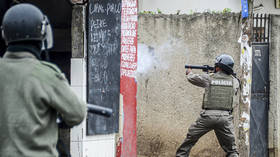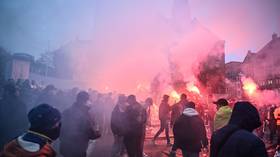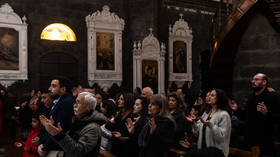“What I admire most about Russians is their courage” – French WWII pilot
RT presents War Witness – a special project dedicated to the 65th anniversary of the Victory in the Second World War.
World War II veterans recount their stories about the war, how it began and what happened in the very first days of the fighting.
Roland de la Poype, a fighter pilot from the famous Normandie-Niemen fighter wing and Hero of the Soviet Union who was young when the Second World War started, said he does not accept that France bowed down without a fight.
“We had a debt to the Russians who came to help us in 1914-1917. I knew it so well, that going to Russia for me was almost a must. So when I was asked at headquarters of General de Gaulle’s Free French Forces if I would go to Russia with a squadron, I said – of course, right away,” he recalled.
“I arrived in the Russian town of Ivanovo with other French pilots. There were 14 of us in total and that’s how the Normandie squadron began. We were very proud to be with the Red Army. We did everything to approach a victory day. We had a great spirit of camaraderie, and we had it with the Russians as well. We would say to them – ‘I love you’. We knew cavalry men from the Caucasus, we knew infantry men following the tanks, and of course we knew the pilots. Everybody took part in the common battle and in victory.”
Valentin Ogurtsov, aircraft mechanic for the Normandie-Niemen fighter wing during the war, says he was in graduation class at school when he was drafted.
“All the boys from my class were enlisted. We were 17 years old then. I was sent for training o the town of Ivanovo. We were trained to handle American Airacobra aircraft engines. Before we could complete our training, we were transferred to the city of Tula. Once we arrived at the local airfield, we were told that our pilots would be French. But none of them spoke Russian and none of us spoke French. The pilots would come to meet us with a translator. And the aircraft were not the Airacobra we knew, but the Russian Yaks. During training some pilots crashed,” he said.
“Our Frenchmen were really good fighters. During the war, the Normandie-Niemen fighter wing shot down 273 planes, which is a lot. They lost 40 pilots in action. They used to call us mechanics ‘the guardian angels’. They knew we would work all night long to make sure everything was fixed by morning.”












